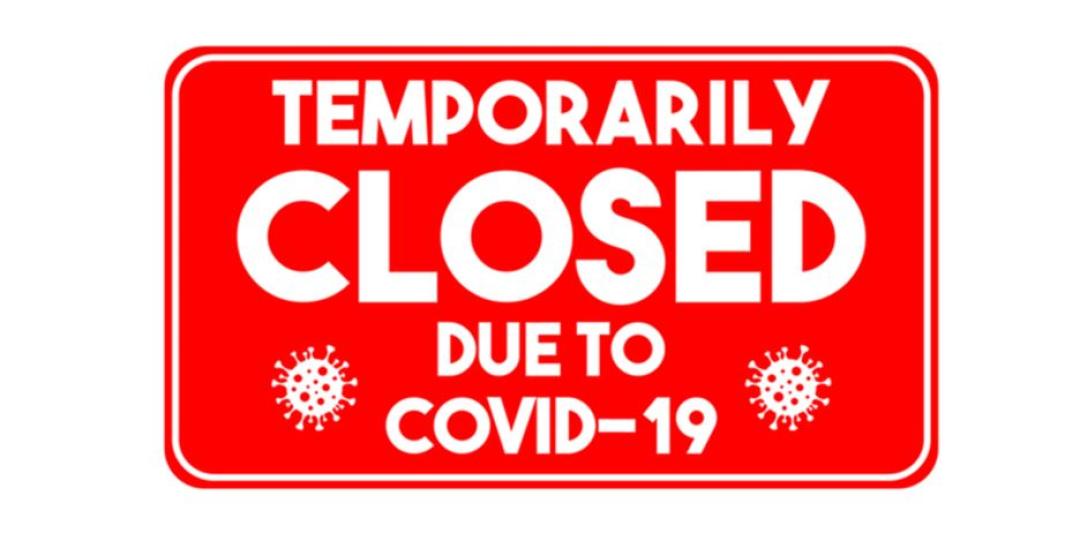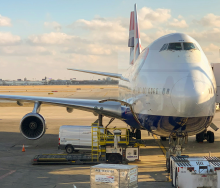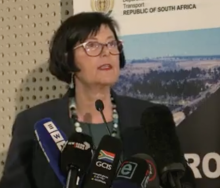Cross-border logistics operators this morning are still smarting from the news that the Skilpadshek Border Post on the important east-west network linking Namibia with South Africa through Botswana, the Trans-Kalahari Corridor (TKC), will be closed until July 19.
Yesterday’s notice, circulated by the Transit Assistance Bureau (Transist), is the latest embarrassing development in a sorry saga of financial and organisational ineptitude on the part of the Department of Health (DoH) – large-scale negligence that first emerged some seven weeks ago when the country’s borders ran into Port Health staffing issues.
Although the inability by the department to pay for outsourced community health professionals to assist with Covid-19 screening affected other ports of entry, Skilpadshek has been the worst affected border post all along.
Shortly after yesterday afternoon’s notice was posted on Transist’s messaging group, Mike Fitzmaurice of the Federation of East and Southern African Road Transport Associations calculated the cost of closing such an important crossing for so long.
Shutting the border down for 15 days, he said, could translate into an estimated loss of $15 036 000.
Breaking it down into rand terms, the cost to industry could be R232 456 569.
Fitzmaurice slammed the decision as “totally unacceptable”.
“How do you justify closing a mainstream border post linking South Africa with Namibia and Walvis Bay for two weeks? Government needs to be held accountable for this – the loss to industry and regional trade.”
His denouncement of the situation was echoed all around, decried by people on the ground who all had different things to say but are united in one strong sentiment – that the closure of Skilpadshek could have been avoided.
One Transist member who represents a transporter called Loubser Bulk Services, said they had offered to pay for qualified nurses in need of work to stand in as Port Health officials.
“Sadly, the offer was refused – point blank.”
It’s not the first time that this claim has been aired, neither is it the first time that the DoH has been conspicuously silent in responding to the stupefying notion that it’s been caught with its head in the sand about the issue.
Another accusation that the staffing debacle around Port Health workers has been poorly dealt with came from a clearing agent whose name is known to Freight News.
The agent repeated what has been said recently, that between the DoH, the SA Police Service (Saps), the SA Revenue Service (Sars), and the Department of Home Affairs (DHA) – who are principally responsible for South Africa’s ports of entry – staff have been on short time, if working at all, during the pandemic.
Referring to another border crossing into Botswana further norther of Skilpadshek, the agent said: “The whole of Swartkopfontein’s staff (Saps, Sars and Home Affairs) have not been on duty since April 2020. Surely they can assist Port Health?”
The border posts of Kopfontein, situated just north of Swartkopfontein, as well as Ramatlabama, south of Skilpadshek, will now have to be used as alternative transits for traffic on the TKC, adding to fear among transporters that overconcentrating traffic into two ports of entry when you should be using three creates superspreading congregations of travellers and truck drivers.
The rigidity of Botswana’s health authorities, who insist that nothing other than polymerase chain reaction (PCR) test results be furnished upon entry, also continues to elicit complaints and pleas for assistance by transporters who claim that PCR protocols are playing havoc with the supply chain into and through the landlocked country.
Fitzmaurice explained that coronavirus testing was a major challenge in the area as much of the decision making was panic related.
Especially problematic is the lack of Covid cohesion between countries.
“We have appealed to the World Health Organization and World Customs Organization to assist with getting some sort of regional harmonisation on testing but it’s proving to be a real challenge.”













